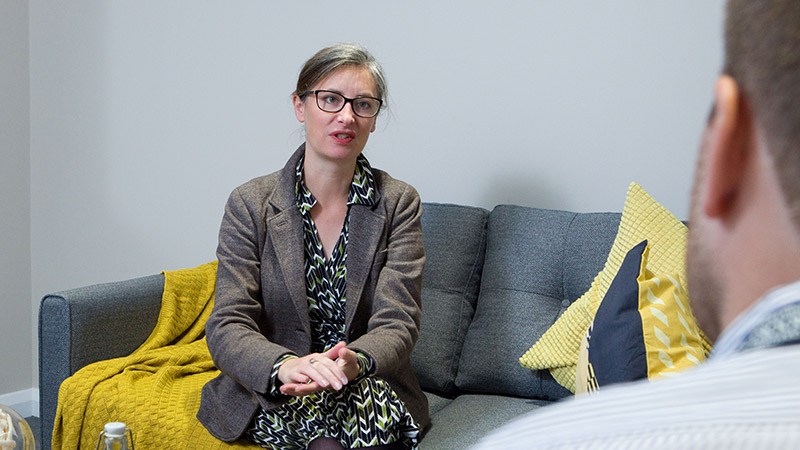Care at the End of Life
Credit bearing module
Key facts
Overview
This single practice-focused module explores death and dying from a professional practice perspective. This includes discussion of the principles of palliative care and notions of a 'good death'. You will evaluate ethical, legal and professional frameworks, and policy and service provision, and their applications across different cultural and practice settings.
You will develop a critical awareness of the dying process and symptom management, communication and assessment, viewed within their cultural context. In the process, You will develop greater self-awareness of your attitudes to death, dying and loss, and how these impact on the dying person and their families.

How to apply
Entry requirements
You must be from a respective healthcare background and have support from the clinical manager to undertake this module of study.
Terms and conditions of enrolment
When you accept our offer, you agree to the Terms and Conditions of Enrolment. You should therefore read those conditions before accepting the offer.
Application process
Apply through our Moodle Portal.
You will need to register for the portal prior to proceeding with an application.
Tuition fees
Questions about fees?
Contact Student Finance on:
Tuition fees
Fees quoted are for the first year only. If you are studying a course that lasts longer than one year your fees will increase each year.
How and when to pay
Tuition fee instalments for the semester are due by the Monday of week 1 of each semester. Students are not liable for full fees for that semester if they leave before week 4. If the leaving date is after week 4, full fees for the semester are payable.
- For information on payment methods, please see our Make a Payment page.
- For information about refunds, please visit our Refund policy page
Financial support and scholarships
Additional costs
Please be aware that some courses will involve some additional costs that are not covered by your fees. Specific additional costs for this course are detailed below.
Learning and assessment
Teaching and learning is based around 6 learning units, each of which runs over a two week period, giving students flexibility of access and time management.
Students will have opportunities to:
- Engage in guided text-based learning activity
- Engage in online discussion forums
- Use a learning log for personal reflection
- View films online and listen to Podcasts
- Experience seminar presentations using Articulate
- Take part in online tutorials

Learning and teaching
Outline Units of learning:
- Culture, death and dying; spirituality; culturally sensitive care
- Principles of palliative care, the ‘good death’, communication specific to the end of life: ‘being with’ the dying person, talking about dying
- Policy frameworks for end of life care, leadership and service development in palliative care
- Legal and ethical issues in end of life care; mental capacity, advance care planning artificial hydration and nutrition, assisted dying
- The dying process and recognising dying, complex symptom management at the end of life, supporting families and children
- Care after death; loss and bereavement, resources for patients and families
Programme changes:
On rare occasions we may need to make changes to our course programmes after they have been
published on the website. For more information, please visit our
changes to programmes page.
